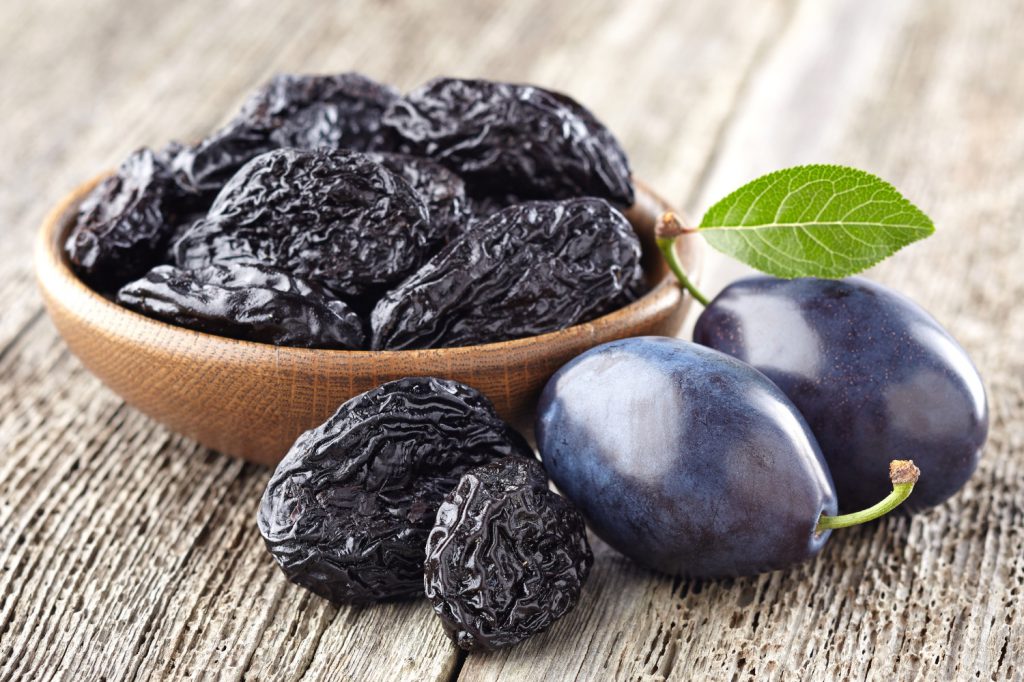
You might have experienced eating prunes when your stomach backed up. It’s dried fruit that helps to restore stomach function. So, it is obvious; to think that it may have the same effect on the dogs. Can dogs eat prunes? It is a question that is asked by new dog owners most of the time.
Yes, Dogs can eat Prunes, but only under stick moderation; a single prune will not affect them, but it will definitely cause digestive problems if eaten multiple times. Prunes are not toxic to dogs, but they should still be avoided. The large consumption may result in bloating, vomiting, or diarrhea.
You may find several conflicting reviews about prunes are safe for dogs? Many are there who believe that foods that are safe for humans are also safe for dogs. That’s not true because both have different digestive systems. There are pet parents who know well that some foods are not suitable for dogs.
You might also like our recent blog post on the Best dog food for American bullies. It’s a review where we discuss the pros and cons of different foods for American Bully.
Are Prunes Safe for Dogs?
When it comes to prunes, many dog owners become confused because they find reviews on both sides. Some say that it’s ok to feed. At the same time, others are sharing opposite views.
You must not offer food to your dog, but yes, you can share it in a minimal quantity and do not repeat this practice. Indeed, they are a competent remedy for constipation in humans, but it’s not the same for another mammal.
Here we need to understand that carnivores and omnivores have different digestion systems and nutritional needs.
When your dog is constipated at that time, you can use a single dose to make his bowl regular. But it cannot feed in a regular way to get the same benefits are humans are getting from it.
Nutritional Facts of Prunes
Fiber and sorbitol-rich food are known for their effectiveness in relieving constipation. While on the other side, polyphenol antioxidant is also found in this food that can reduce inflammation and lower the risk of chronic diseases.
Prunes are richer in fiber when we compare them with plums. We discussed it because giving your dog fresh plums fruit is not similar to feeding your dog prunes or prunes juice. Usually, dogs do not like to eat fruits because they are carnivores.
Here some nutritional facts of Prunes:
By weight, prunes are higher in calories than plums. A 1-ounce (28-gram) serving of prunes contains the following:
- Calories: 67
- Carbs: 18 grams
- Fiber: 2 grams
- Sugars: 11 grams
- Vitamin A: 4% of the RDI
- Vitamin K: 21% of the RDI
- Vitamin B2: 3% of the RDI
- Vitamin B3: 3% of the RDI
- Vitamin B6: 3% of the RDI
- Potassium: 6% of the RDI
- Copper: 4% of the RDI
- Manganese: 4% of the RDI
- Magnesium: 3% of the RDI
- Phosphorus: 2% of the RDI
As you can see, there are many favorable elements present in prunes, but we are not going to discuss these in depth because this food has no good for the dog. We cannot feed it in routine.
What Quantity is Safe for Dogs When Fed Regularly?
You might think that you can feed prunes to your dog in small quantity but it is not the case.
You cannot feed prunes to your dog regularly, even in small quantities, because it is natural laxatives. That means when you make a habit; then your dog needs to keep the bowel regular and in case you stop it. The four-legged furry friends may suffer from constipation and other stomach problems.
While on the other side, dogs are born as carnivores, and they have teeth structure as per their need; they are conducive for vegetables and fruits.
Feeding too many prunes and feeding this fruit regularly has its consequences; this is the reason it’s not recommended for dogs. There are dozens of prunes elements that can give your dog overall well-being, but regular feeding will create other types of problems.
What Happen When Dog Eat Excessive Prunes?
There are no nutritional benefits of giving prunes to you, but it can be life-threatening if you fail to identify that under-listed are reactions of prunes eating.
- Loss of appetite
- Diarrhea
- Cramping
- Vomiting
- Bloating
In case you start feeding prunes to your dog, which is not advised, keep your eye open, and if you find any of the above-listed symptoms, then contact your vet immediately. It will take a few days to recover from the side effect of prunes.
Serve your dog a plenty of water and allow his to rest.
Frequently Asked Questions
Can dogs have prunes juice?
What can I give to my dog instead of prunes?
Can dogs eat pitted prunes?
Can Dogs Eat Prunes for Constipation?
Final Verdict
Prunes can be used as a temporary solution for your dog; you should not intentionally feed his prunes. Utmost avoid giving prunes in dry, fresh, pitted, or in any form. Even prunes juice is not recommended for dogs.
In the case of constipation, you can give him a small quantity; just one or two prunes is enough for your dog. Pet parents only can choose to feed their dogs with prunes when they feel obstructing their dog’s bowel.
Here we share the pros and cons of prunes for dogs; while considering these pros and cons, you can decide on your own either you need to go for it or not.
Pros
- They are rich in potassium that can be helpful for the nervous system of your dog.
- Iron in Prunes helps in the formation of red blood cells.
- Micro minerals help to stay in good health.
- It also prevents nervous disorders.
- Clear stomach disorder and deal with digestion.
- Fiber helps to get healthy colon retention.
- Iron also helps to battle anemia.
Cons
- When fed excessively, the insoluble fiber triggers diarrhea as its natural laxatives.
- Its high sugar content will help your dog to gain more weight quickly.
- It will make your dog lazy and less playful.
- Your dog will start bloating and suffer from gassiness.
- Your dog will start depending on laxatives; in the absence, he will suffer constipation.
- High iron in prunes will turn the stool color into black.
Many pros might convince you to feed prunes in strict moderation, but once you make it a regular diet, your dog’s stomach will become habitual to it. Once you stop it, he will get caught into constipation that is the biggest disadvantage of prunes.
Even with the best of intentions, accidents happen, the dog easily eats the food that shouldn’t. Such accidents are not fatal, but they result in huge veterinary expenses.
